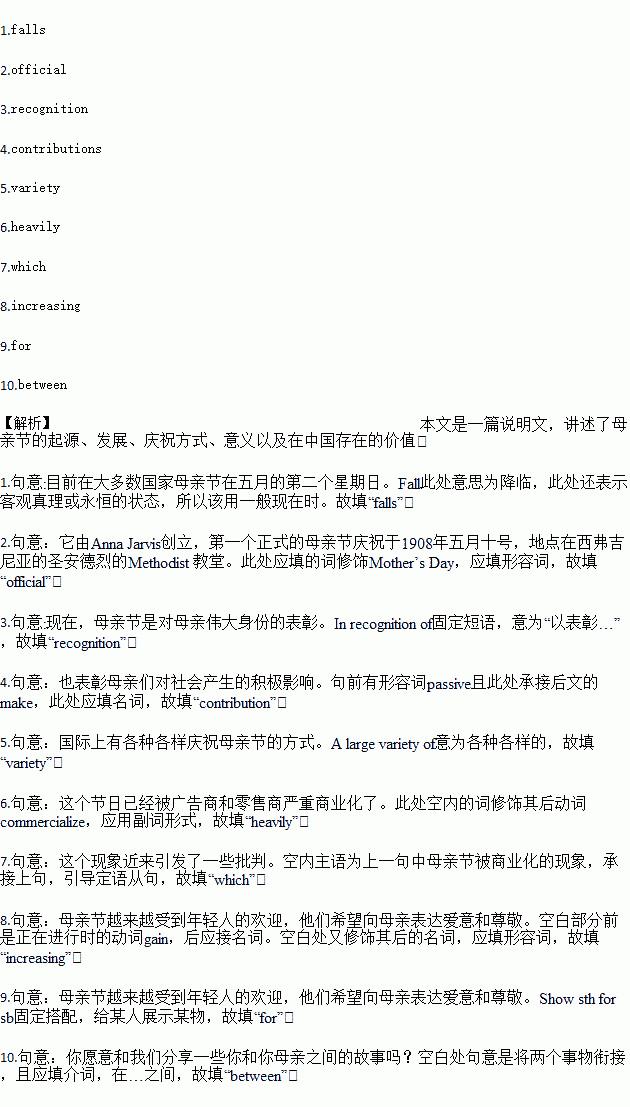题目内容
Nowadays Mother’s Day in most countries1. (fall) on the second Sunday of May. It was established by Anna Jarvis and the first2.(office)Mother’s Day was celebrated at St. Andrew’s Methodist Church in Grafton, West Virginia, on May 10, 1908. Mother’s Day is now observed in3.(recognize)of mothers motherhood, maternal bonds in general, as well as the positive4.(contribute)that they make to society. Internationally there are a large 5.(various)of Mother’s Day celebrations, but the most common traditions on the day include churchgoing the distribution of carnations, and family dinners. In the US it is estimated the 50 percent of American households send greeting cards on this holiday. The holiday has been6.(heavy)commercialized by advertisers and retailers,7.has recently caused some criticism.
Today in China, Mother’s Day is gaining8. (increase)popularity among young people who want to show love and respect9.their mothers. Would you like to share with us some stories 10.you and your dear mother, or some gifts you sent to your mother for Mother’s Day?

